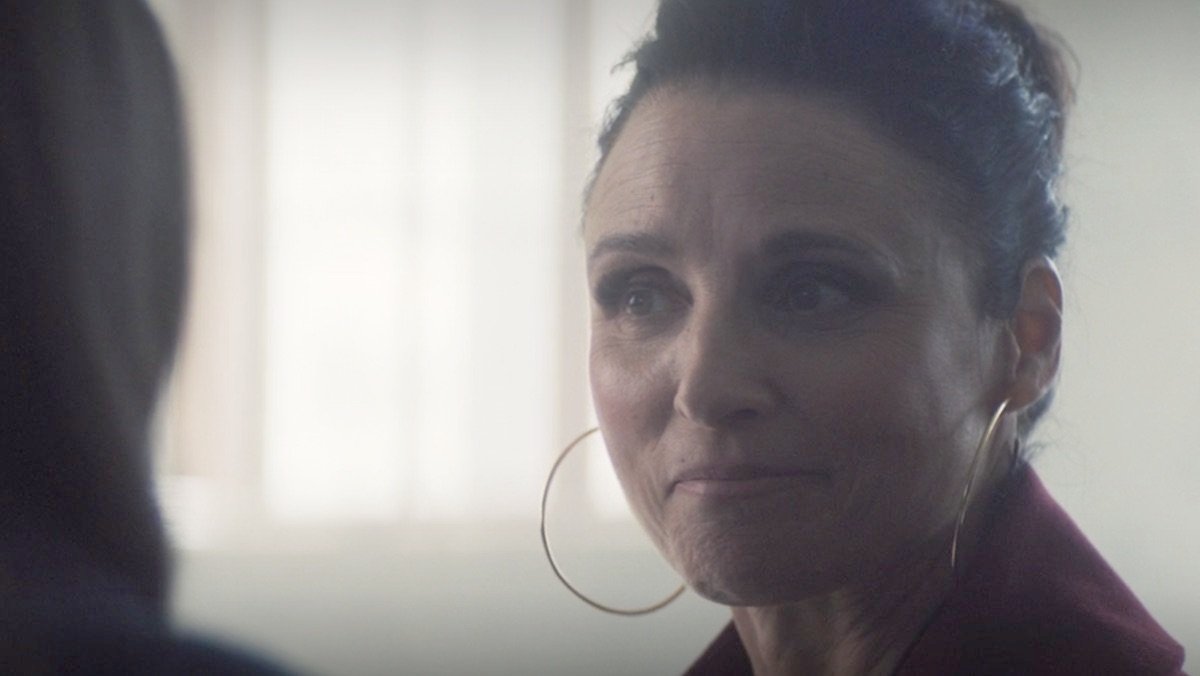Black Panther: Wakanda Forever may have introduced Namor as its most nuanced villain yet. But it also revealed the true villain of this next phase of the MCU: CIA director Valentina Allegra de Fontaine. First appearing in The Falcon and the Winter Soldier, de Fontaine (Julia Louis-Dreyfus) has been a mysterious figure. She brought characters like U.S. Agent and Black Widow’s Yelena Belova to her Thunderbolts team. This is similar to how Nick Fury appeared in post-credit scenes in Phase One MCU films, leading to the first Avengers team in the MCU. But as Wakanda Forever shows, Valentina Allegra de Fontaine is actually the next big villain in the MCU.

Wakanda Forever captures Black Panther’s nation at a watershed moment in international politics. The nation’s secret supply of vibranium now public information. And imperial superpowers like the United States want to obtain the most valuable natural resource in the world. Tensions escalate further when the US blames Wakanda for attacking an American ship that was looking for vibranium. As it turns out, the technology powering the Americans’ search came from 19-year-old Riri Williams (Dominique Thorne). This has placed her in the sights of both Wakanda and the underwater kingdom of Talokan. With Wakanda’s public image under threat, the nation’s only foreign ally is CIA agent Everett Ross (Martin Freeman), the ex-husband of de Fontaine.
The film’s biggest battles are fought between Shuri’s Wakanda and Namor’s Talokan; however, their real enemy is Valentina Allegra de Fontaine. Both Shuri and Namor fear that their nations will be exploited by Western powers for their vibranium. We soon discover that their fears are valid. Valentina Allegra de Fontaine later explosively admits in a very MCU-villany way that she “dreams” of a world where the United States controls the global supply of vibranium. In a meeting with her colleagues at the CIA, including Ross, de Fontaine is eager to go to war with Wakanda if it means gaining their vibranium. As such, Wakanda Forever paints de Fontaine’s true motivations as deeply imperialistic.
While imperialism isn’t new in the MCU, de Fontaine’s embodiment of it is. Previously, the MCU has represented imperialism through aliens like Thanos and Thor: Ragnarok’s Hela. Despite their horrifying actions, these villains’ imperialism was presented with a degree of removal because of the fact that they weren’t human. It’s easier to ignore the similarities between Thanos’ paternalistic rhetoric in Avengers: Infinity War and the United States’ history when the former is an eight foot tall alien with purple skin. This violent human operation can be dismissed as pure fiction.

But Valentina Allegra de Fontaine is drastically different for one reason: she’s human. And more than that, her appearance goes against the villainy that the MCU has conditioned fans to recognize. De Fontaine’s purple streak of hair, “girlboss” attitude, and performance by Julia Louis-Dreyfus lulls fans into a false sense of security. She’s quirky, so she can’t be that evil, even if she’s the director of the CIA, right? How bad can Elaine from Seinfeld be when U.S. Agent is running around murdering people in broad daylight?
And this is precisely the point. By dressing up de Fontaine’s imperialism under the guise of a quirky white American woman, Wakanda Forever continues Black Panther’s damning exposé of audience expectations. Neither Namor nor Killmonger were the true villains of either Black Panther film. The common evil denominator is US imperialism. Agent Ross admitted that Killmonger learned how to enter and destabilize countries like Wakanda from the American military. Namor is only at war with Wakanda because an American ship of Navy SEALs threatened his underwater kingdom, and blamed it on Wakanda.
De Fontaine’s grinning face and affinity for Peloton is a veneer that places her squarely within a recognizable world for the audience. In doing so, Wakanda Forever makes a point to say that this villain is more like us than we want to admit to. While Tony Stark was having anxiety attacks in Iron Man 3 about the Chitauri invasion from Avengers, a real threat to global stability was percolating in Virginia. Audiences were taught to fear Ultron and other robots because of their callous nature and capacity for violence. But we see those same behaviors by de Fontaine in Wakanda Forever. The call is coming from inside the house.

This change breaks a crucial rule about the MCU’s representation of the American government. Before, in films like Captain America: The Winter Soldier, villains in the US government were “bad apples” in a good bunch. Robert Redford’s Alexander Pierce is a uniquely bad person within the World Security Council. He’s an evil that “good” people like SHIELD director Nick Fury must balance out. Pierce was an anomaly working covertly within the system for nefarious purposes, but de Fontaine is much different. She’s an evil person with support and subsequent enablement by the system and American foreign policy.
De Fontaine isn’t unique. She’s simply a reflection of American interests in the twenty-first century. It is fitting then that she is the one who handcuffs Ross, the only “good” CIA agent, in his own home for his treasonous decision to aid the Wakandans. The role that de Fontaine plays in Wakanda Forever hints at the important shift for women in the MCU’s future. Though the MCU has more female heroes, Valentina Allegra de Fontaine’s turn as a villain is refreshing.
In many ways, de Fontaine is the foil of Lupita Nyong’o’s Nakia, an early advocate for Wakanda’s global outreach programs. In this sense, characters’ feelings towards vibranium are now the perfect litmus test for separating the good from the bad. By revealing to the world the secret behind their technological innovation, Wakanda learned who their true enemies are. And as Wakanda Forever evidences, they are much closer than they thought. Let’s see how de Fontaine plays into Phase 5 of the MCU.